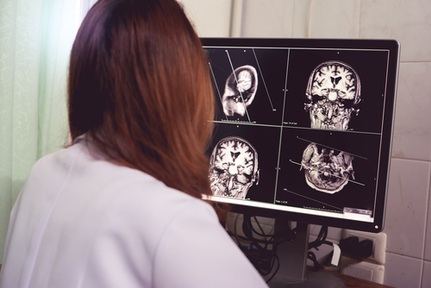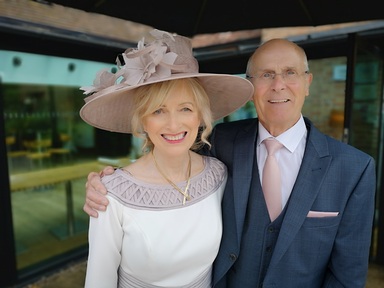'Historic' drug hailed by dementia charity as 'new hope' that can slow Alzheimer's
Alzheimer’s Research UK has called a new drug "historic" for its ability to slow the pace of brain decline caused by Alzheimer’s disease.

The drug, lecanemab, can remove toxic beta-amyloid proteins that build up in the brains of people with Alzheimer's disease.
Pharmaceutical companies Eisai and Biogen have said their drug works when it is given to people in the early stages of the condition.
An 18-month drug trial involving 1,795 volunteers in the early stages of Alzheimer's disease saw participants injected with lecanemab every two weeks.
After testing participants' memory and mental ability regularly, scientists found the pace of their cognitive decline had been reduced by 27 per cent over 18 months, when compared with people given a placebo. Levels of the toxic protein were also reduced in the brain.
'This is a big moment'
Tim Parry, director at Alzheimer's Research UK said: “This is a big moment for dementia research. I’ve worked in this field for 14 years and I haven’t really felt this way about a development as I do today.
“It reduces or slows cognitive decline by 27 per cent and it also clears the amyloid protein plagues that build up in the brains of people with Alzheimer’s.
"This drug is disease modifying. That means it slows the process of the destruction in the brain. The next step is to see if this drug will be regulated in the States and over here in Europe and reach patients."
As well as lecanemab, there are more than 140 experimental drugs in clinical testing today.
In a statement, Alzheimer's Research UK, said: 'This is the news we’ve all been waiting for. Today, the pharmaceutical company Eisai announced that their drug, lecanemab, has shown small but clear benefits for people with early Alzheimer’s in a rigorous, well-conducted phase 3 trial.
'It is, truly, a historic moment for dementia research. And it’s a vindication of what we at Alzheimer’s Research UK have long believed: that scientific research on dementia and the diseases that cause it will lead to effective treatments.'
The trial’s results were announced from the drug’s manufacturers, Eisai but have not yet been subject to full scientific scrutiny by peer review. Possible side effects (experienced by just over one in five patients (21.3 per cent) who took the drug) were swelling of the brain and brain bleeding.
The charity added: 'Today’s news is a profound step forward. For the research community, it marks the day that the idea of targeting the biological processes, well-accepted in field like cancer and cardiology, has finally been proven in dementia.
'There are many hurdles ahead that need to be cleared before the drug can be made available to people here.'
The trial’s participants had either mild Alzheimer’s or mild cognitive impairment. The drug will not work for other forms of dementia.
The charity said the trial’s results "probably means its benefits will be measured in extra months rather than years [for people with the condition]. But as anyone affected by Alzheimer’s – or any progressive disease – knows, those months can be precious".
'Difficult to see' once articulate, confident man 'become afraid'

Alison Littleford, whose husband Frank was diagnosed with Alzheimer’s disease in 2020, said: “We don’t yet know if this is a drug that will be beneficial to Frank, or if and when he would be able to be prescribed it.
"But it is so important to us to see that research is making progress.
“It has been so difficult to see a once articulate, confident, outgoing and sociable man become afraid, confused, embarrassed and dependant on me in such a short period of time.
“But it is a great comfort to us, as it will be for so many families affected by Alzheimer’s, that there is hope that new treatments are on the horizon.”
Latest News
 29-Jul-24
Dementia Bus gives carehome.co.uk staff insight into life with dementia
29-Jul-24
Dementia Bus gives carehome.co.uk staff insight into life with dementia
 01-Mar-24
Find out the top care homes in 2024
01-Mar-24
Find out the top care homes in 2024
 21-Mar-23
UK's top care homes in 2023 revealed
21-Mar-23
UK's top care homes in 2023 revealed
 03-Jan-23
carehome.co.uk launches free care helpline
03-Jan-23
carehome.co.uk launches free care helpline
 13-Dec-22
5 mins with Emily Whitehurst, chief operating officer for Constantia Healthcare
13-Dec-22
5 mins with Emily Whitehurst, chief operating officer for Constantia Healthcare